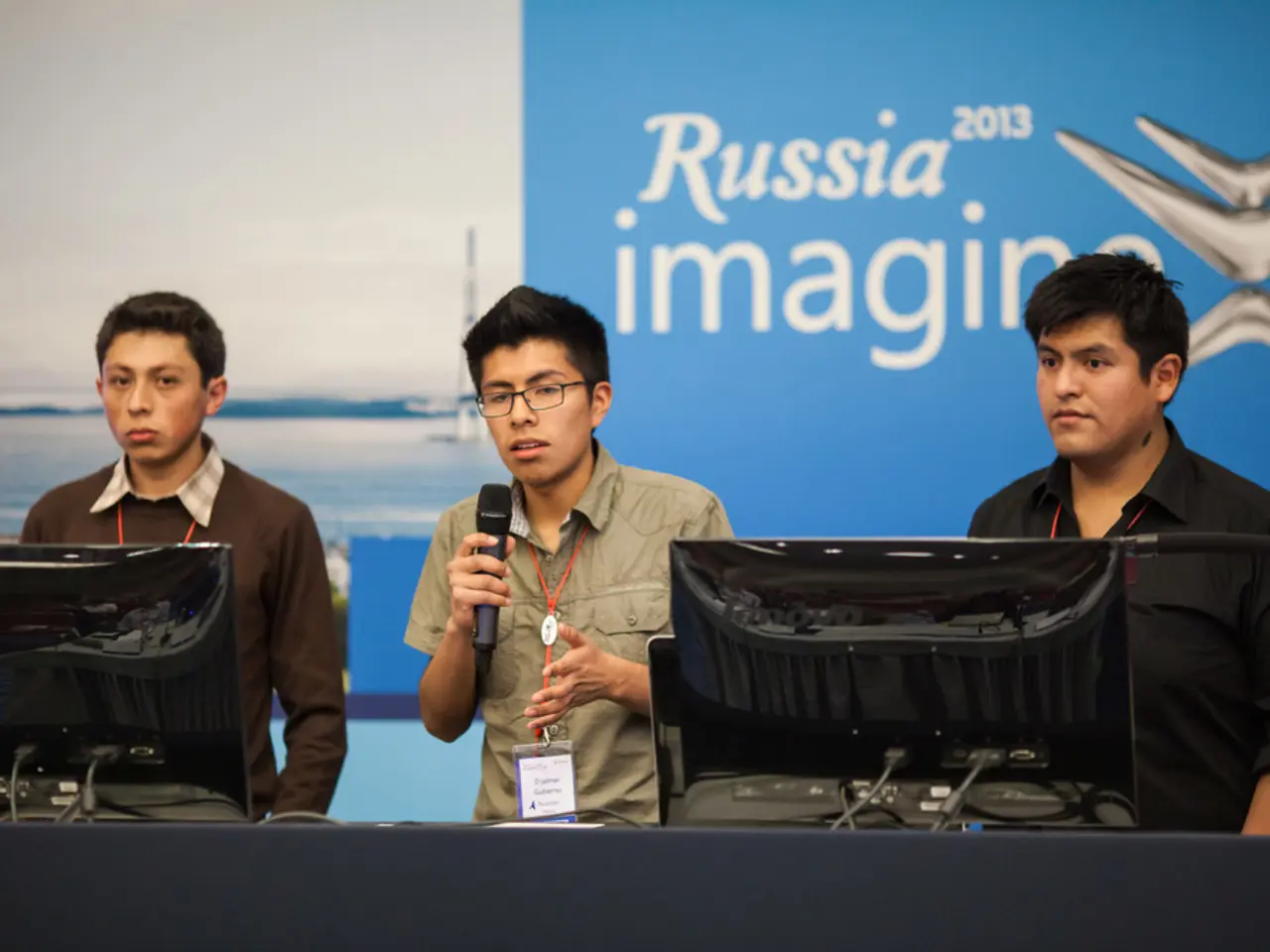Europe's AI Startup, Tactile, Laments Struggle with AI Regulations
In the bustling digital landscape of Berlin, a new player is making waves. Tactile AI, a cutting-edge AI startup, has recently secured $54 million in funding and set its sights on conquering the financial sector.
At its core, Tactile AI sees itself as the modern reincarnation of the old software category "Decision Management Platforms." The company's product development remains rooted in Europe, while its commercial team is based in New York, aiming to build an infrastructure that is easy to use, robust, and secure for the requirements of the financial sector.
Tactile's success story began with co-founders Maximilian Eber and Maik Taro Wehmeyer, who previously worked together at the US firm QuantCo, developing algorithms for insurers, banks, and e-commerce companies. The name Tactile is associated with "tactile" - those touch fields for the visually impaired, symbolizing decision-making processes being tangible and accessible to non-technical experts.
In the Fintech world, Tactile has made a significant impact, with the world's largest Fintech, Nubank in Brazil, boasting 110 million customers, among its clientele. However, unlike Mistral from France, there are currently no German AI models for the Fintech sector, highlighting a gap in the market that Tactile is eager to fill.
The choice of AI model depends on geography and usage, with European customer data usually not allowed on US servers. Tactile does not choose the AI models for its customers; instead, it offers a selection, including Anthropic, Gemini from Google, or OpenAI, allowing businesses to make informed decisions based on their specific needs.
Despite the regulatory challenges, Tactile remains focused on the financial market, but has also received inquiries from other sectors like logistics, telecommunications, and energy. Long-term, they aim to play a role in all areas, potentially even in administration.
The regulatory regime in Germany is one of the strictest worldwide, protecting consumers well. However, the EU's AI Act has caused some caution among companies in the digital banking sector in Berlin, which has seen growth in recent years.
Tactile's solutions consist of modular building blocks, such as a case management module for case handling, applicable in various areas like money laundering, fraud detection, or sales. In Germany, there's the Deposit Protection Fund, insuring account holders up to 100,000 euros, ensuring deposits are secure.
As the digital landscape continues to evolve, Tactile AI is poised to make a significant impact, bridging the gap between AI and the financial sector, and offering practical, tangible solutions for non-technical experts. The company's growth strategy remains focused, but its potential reach is vast, with the aim to play a role in all areas, potentially even administration, in the long-term.
The future of AI in the financial sector is uncertain, but with Tactile at the forefront, it promises to be an exciting journey. The company's success underscores the importance of education, research, and regulation in fostering innovation and attracting fast-growing, innovative companies to Germany and Europe.
Read also:
- Understanding Hemorrhagic Gastroenteritis: Key Facts
- Stopping Osteoporosis Treatment: Timeline Considerations
- Trump's Policies: Tariffs, AI, Surveillance, and Possible Martial Law
- Expanded Community Health Involvement by CK Birla Hospitals, Jaipur, Maintained Through Consistent Outreach Programs Across Rajasthan







